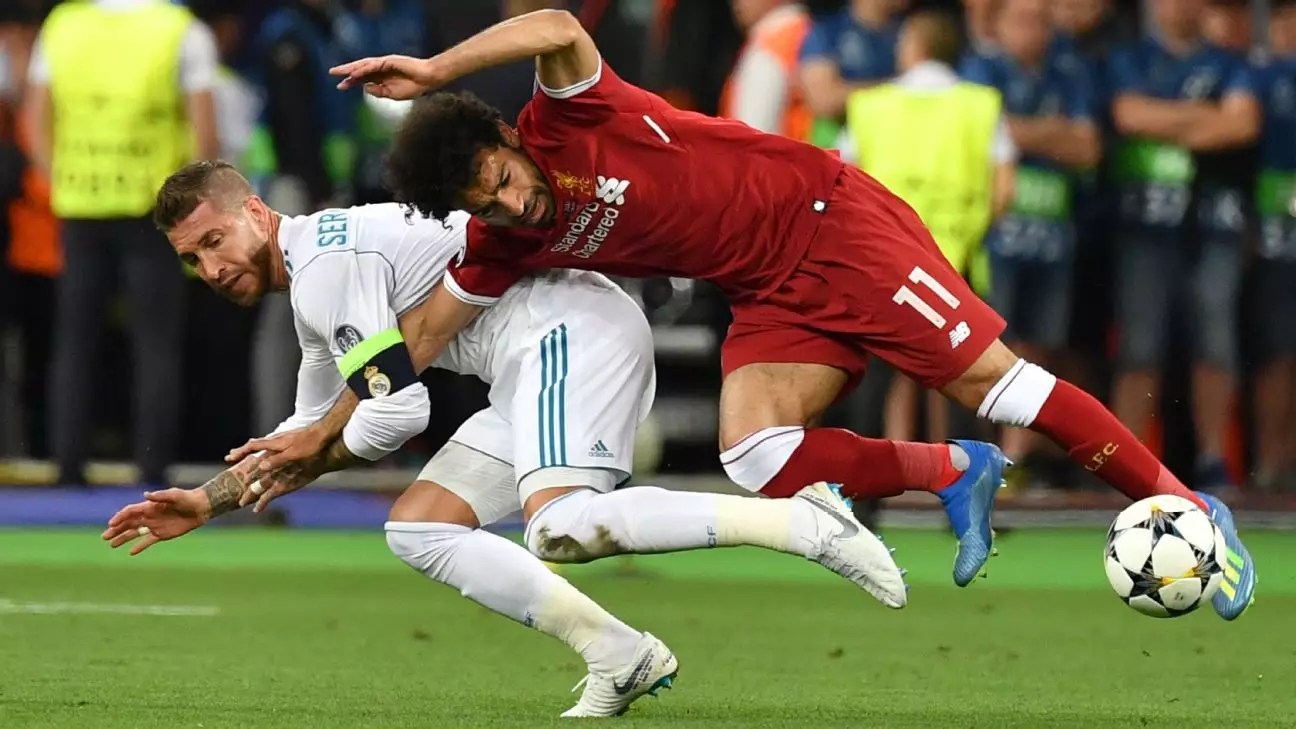In a recent podcast discussion with Toni Kroos, former Liverpool manager Jürgen Klopp took the opportunity to express his disdain for Sergio Ramos, specifically referencing an incident from the 2018 UEFA Champions League final. During this highly publicized match, Ramos was involved in a controversial collision with Mohamed Salah, which ultimately sidelined the Egyptian winger due to a shoulder injury. This event not only changed the course of the game, leading Real Madrid to a 3-1 victory, but it also sparked a polarized debate about the ethics of player conduct on the field.
Klopp didn’t mince words when discussing Ramos, questioning whether the Spain international is genuinely a “good guy.” This statement reflects a deeper moral quandary that exists in the world of professional sports. The Liverpool manager characterized Ramos’ actions as “brutal,” suggesting that a true sportsman should exhibit a sense of responsibility towards the safety and well-being of their opponents. By articulating that he could never understand Ramos’ mentality, Klopp hinted at a strict code of ethics he believes should prevail in competitive sports—a code that emphasizes respect and empathy among players.
Amidst Klopp’s criticism, Kroos came to Ramos’ defense, describing him as a “very good teammate.” This contrast in viewpoints introduces an interesting dynamic regarding how different players perceive the nature of sportsmanship. Kroos seems to appreciate Ramos for his qualities off the pitch, emphasizing teamwork and camaraderie. This raises questions about how professional athletes navigate the intricate balance between competitiveness and respect within the context of their relationships.
Klopp’s comments underline a broader issue of player safety in football. With incidents like the Salah-Ramos collision often glossed over, it prompts a discussion on how much accountability should be placed on players for their actions. Is a player’s willingness to engage in rough tactics a necessary evil in elite sports, or does it point to a troubling culture where winning supersedes ethical play? Klopp’s remark that “he always thought that my centre-backs were good enough not to be involved in actions like that” suggests an ideal where athletes should be capable of excelling without resorting to harmful tactics.
The dialogue between Klopp and Kroos illuminates the complexities surrounding ethics in football. It compels us to reconsider what we define as sportsmanship and how the culture of winning affects the behavior of players. As fans and analysts dissect these kinds of incidents, the hope is that there will be a shift towards an understanding of the importance of safety and respect in sport. Such discourse not only enriches our understanding of the game but can also pave the way for a more conscientious approach to athletic competition at all levels.


Leave a Reply